- Author Jason Gerald gerald@how-what-advice.com.
- Public 2024-01-19 22:11.
- Last modified 2025-01-23 12:04.
Actions in Photoshop allow you to program Photoshop to perform tasks automatically. This method saves a lot of editing time when you need to edit a lot of photos. If you always watermark your photos, for example, you can set Photoshop to create a watermark and place it on each photo. Actions are essential to making you a more productive and effective Photoshop editor. You can learn how below.
Step
Part 1 of 2: Creating Action
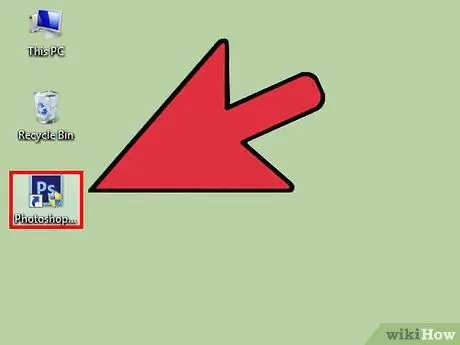
Step 1. Open Photoshop and insert a photo
Once Photoshop is loaded, open the first photo you want to edit. You can also open any photo and create an Action there, as Photoshop will remember all the Actions.
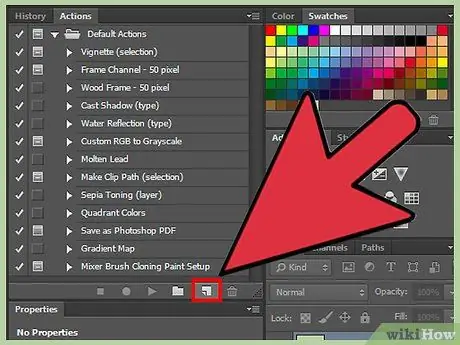
Step 2. Click Create New Action in the Actions panel
The button is sometimes shortened to a small cross. The Actions panel is where you can create, edit, delete, or run Actions on any photo. This pane is usually combined/grouped with the History tab.
- Alternatively, you can click New Action in the Actions panel menu.
- If you can't see the Actions pane, click Windows Actions in the top bar to bring it up.
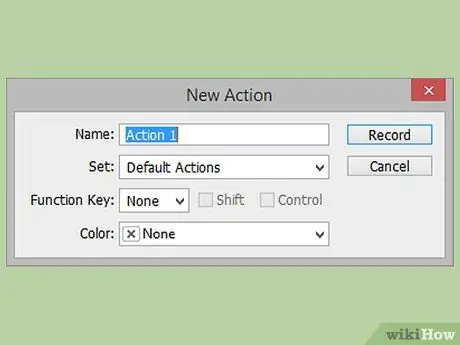
Step 3. Select Action settings
When creating an Action, you need to fill in a few boxes before starting to record. While it's not necessary to change the default settings when you're just starting out, they will give you more control over the Action as you learn more.
-
Name:
Come up with a name that will help remember the function of the Action. If you want to create an Action to crop a photo into a rectangle and adjust its color, name it Polaroid, for example.
-
Action Sets:
Action set is a series or a group of Actions that are used together. You might create Actions for Levels, Brightness, and Contrast and then group them in the “Exposure Correction” Action set. If you have doubts or are just learning, just choose Default.
-
Function Keys:
Allows you to map Actions to keyboard keys, for example F3. So every time you press the key, the Action will be executed.
-
Colors:
Colors are coded to make Actions easier to find.
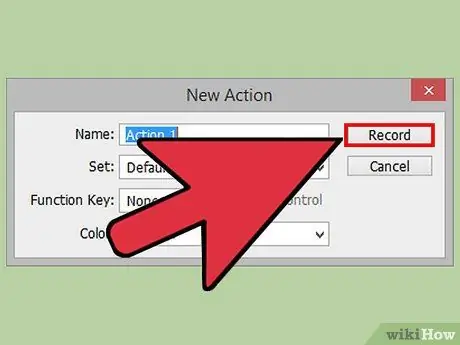
Step 4. Click on Record
Once you start recording, everything you do in Photoshop will be saved as part of the Action. The small button in the Actions panel will turn red to indicate that you are recording.
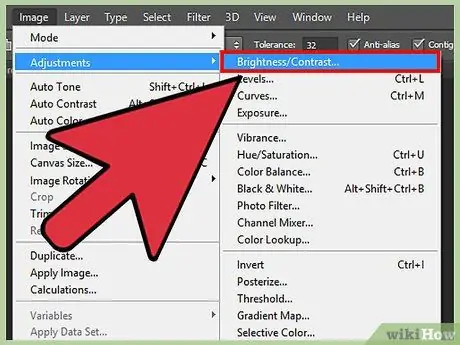
Step 5. Edit photos
Start with something simple to find out how Action. For example, click Image Adjust Brightness/Contrast and adjust the button. Click OK when finished. This means that you've edited the photo while saving the exact same changes as an Action. These changes are called "Commands".
- Note that the changes will now appear under Actions in the Actions panel.
- You can create as many Commands as you want and they will all be recorded as a single Action.
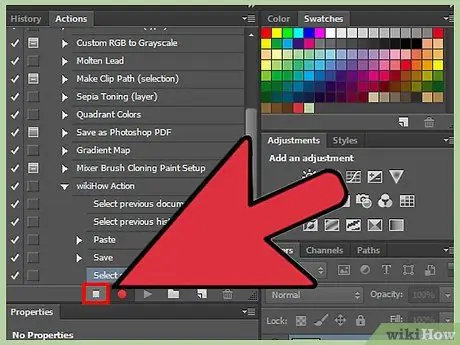
Step 6. Click "Stop Recording" when finished
It's located in the Actions pane, or you can also click the red "Recording" button. Now the Action is saved.
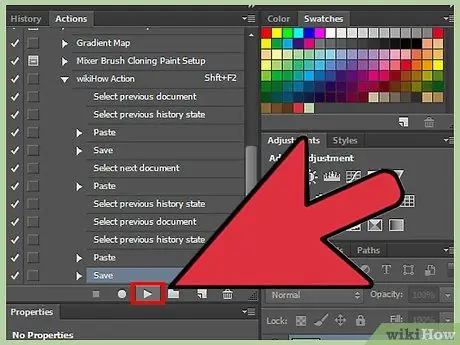
Step 7. Test the Action on another photo
Open a different photo file, then click Action in the Actions panel. Press the little gray "Play" button on the Actions panel to get started. You'll notice, the photo is edited exactly the same as the first one, because Photoshop makes all of the same changes in the same order as when you recorded it into an Action.
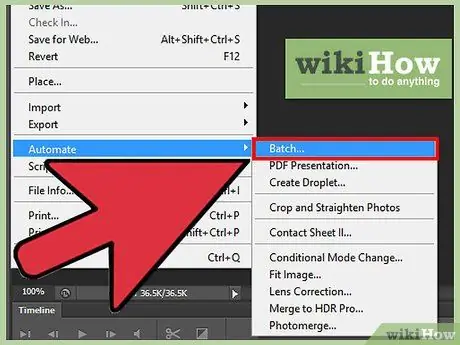
Step 8. Run Action on multiple photos at once
The most useful benefit of Action is that it can process multiple photos at once. This will save you time and energy doing the same steps over and over again. This method is called Batch Action. To do this, follow these steps:
- Click File Automate Batch
- Select Action to run. You can choose from all currently available Actions. You may have to go out first and select Action sets if you have multiple sets and the set you are looking for is not here.
- Select the file you want to edit. You can select the entire folder, the file that is currently open in Adobe Bridge, the file that is currently open in Photoshop, or even the file that you imported into your computer from your digital camera.
- Choose how to name and save the new photo.
Part 2 of 2: Creating More Complicated Actions
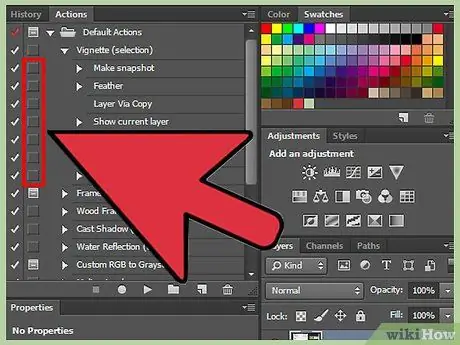
Step 1. Edit, delete, and rearrange steps in an Action
The Actions panel is really great, and you can quickly edit any Action in Photoshop. Click the right-facing triangle next to the Action, to display all the Commands in the Action. Double-click a step to change its value, uncheck the box next to it to delete the step. Then click-and-drag the other steps to rearrange the order.
If, for example, you want to use the Brightness Action but the entire photo is too dark, you can adjust the Brightness/Contrast command to add a bit of light instead of creating a new Action
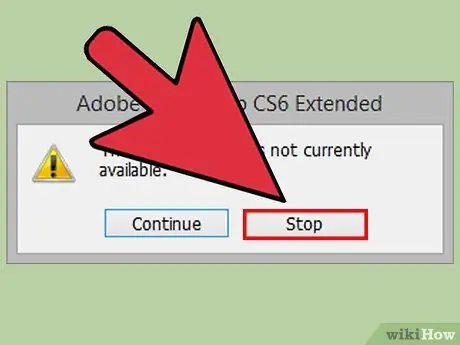
Step 2. Add a Stop to set the Action steps to stop at a certain step
Stop allows you to edit a photo or add special commands while the Action is running. This is a useful trick if you want to type a special message or make each photo unique. To add a Stop, click on a step, just before you want the Action to stop. Then click Add Stop in the Actions panel.
- Once done, click the Play button to continue the Action from the last step.
- Check the Allow Continue box for the option to continue the Action without making any changes.
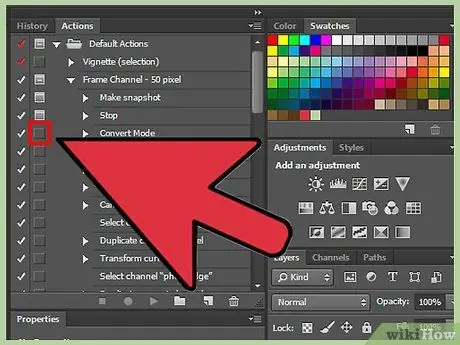
Step 3. Change the settings in the middle of the Action with Modal Controls
With Modal Controls you can customize certain commands each time you run an Action. For example, if I resize a photo as part of a larger edit, but each photo needs to be resized to a different size, I can change the Resize command to a Modal Control. Now, whenever that step appears in my Action, Photoshop will stop and ask me how big I want the photo to be. To create a Modal command, follow these steps:
- Look for the command in the Actions pane.
- The Modal command has a small gray/white dialog box next to it.
- Click this box to enable or disable the Modal command.
- You can click this box next to Action to have all commands in the Modal Action.
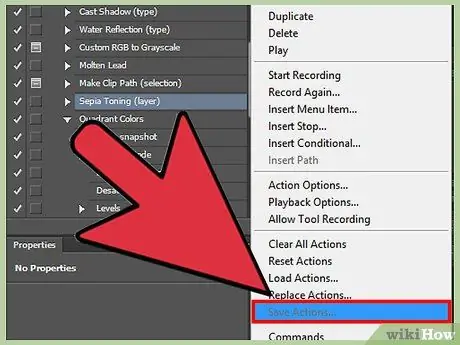
Step 4. Change the Playback Speed to run complex Actions quickly
Click on Playback Options in the Actions menu to adjust the speed. Choose Accelerated for faster results. This will prevent Photoshop from displaying every Action while the Action is running, and will instantly render the finished, final photo.
If you want to see the process in progress, select Step by Step or Wait _ Seconds
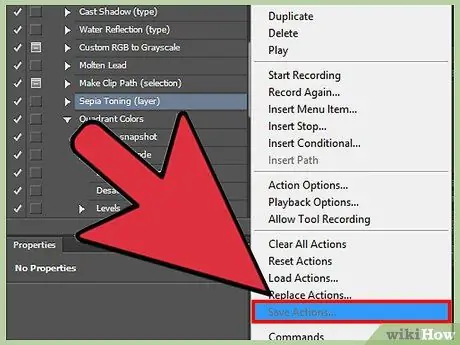
Step 5. Save the Action as an ".atn" file to share or use later
You can only do this on the full Action set. Click the Save Action button to save a copy of the Action to your computer.
Save the Action in Photoshop's Actions/Presets folder to make it part of the default program. You can find this folder by searching in My Computer or Finder
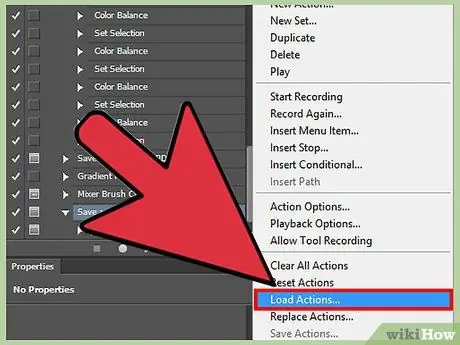
Step 6. You can also use Load Actions to re-open the Actions you created earlier, as long as you have saved them
- Search the internet for the Photoshop Actions you need to download the prepared Actions. These actions are free and number in the thousands.
- You can open any of your created Actions by clicking Load Action to use them again.

Step 7. Create Droplets to run multiple Actions from anywhere
Droplets, this newest feature of Photoshop, is a very powerful tool, which allows you to make multiple changes to files with just one button. You can create a shortcut to a Droplet anywhere on your computer, and then click-and-drag a photo into that shortcut. And automatically, Photoshop will open and edit it. To create a Droplet, follow these steps:
- Click File Automate Create Droplet.
- Select where you want to save the Droplet. If you will use it often, put it on the desktop.
- Select one or more Actions to run.
- Choose how to name and save the new photo.
- Save Droplets.
- You can even send Droplets to other people. Just drag the Droplets into Photoshop shortcuts to optimize them into their operating system before use.






